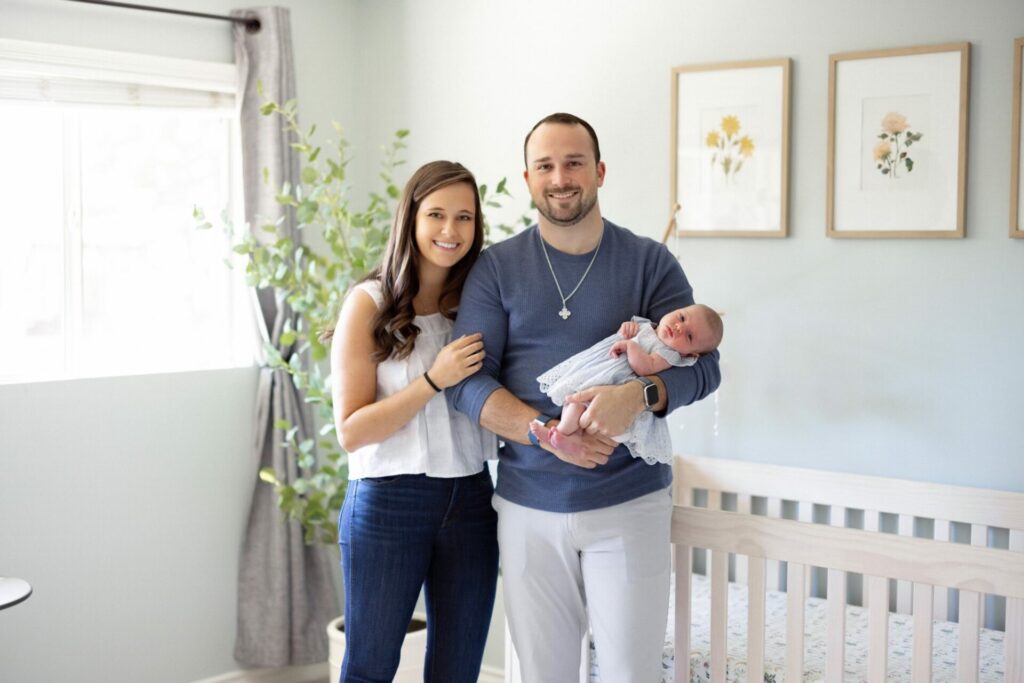
There are certain events in life that can trigger much larger conversations—getting married, buying a house, etc. These milestones often stir us to reflect on our responsibilities and long-term plans. When my wife Meghan and I found out we were pregnant, the necessity of having a will became unmistakably clear. We wanted to secure our daughter Laine’s future now and not wait for a reason.
Reflecting on my own life changes in this season highlights the importance of having these proactive conversations with the families I get to serve—conversations about creating a will and designating a power of attorney.
Having a will is essentially like creating a playbook for what happens to your assets after you pass away. A will provides explicit directions on who inherits specific items, from jewelry to real estate to cars, ensuring there is no room for disputes or questioning among beneficiaries. This clarity is not just about keeping peace and lessening emotional distress within the family; it’s also about saving time and money, shortening the probate process, and ultimately simplifying lives.
In addition to a will, setting up a power of attorney (POA) is equally critical. A POA grants a trusted friend or family member the authority to handle your affairs if you’re unable to do so yourself. This can include financial decisions—like managing bank accounts and paying bills—or even making medical decisions on your behalf. Establishing a power of attorney ensures that your preferences in financial and health matters are respected, even if you’re not in a position to voice them.
The importance of finalizing these two decisions is painstakingly clear, yet many people delay these crucial preparations. Statistics indicate that about two-thirds of individuals in their 40s to 60s haven’t updated their estate plans in the last few years, and the numbers only increase with younger demographics. This oversight can lead to unnecessary complications during already challenging times.
Starting the conversation around estate planning may seem a bit daunting, but it’s a necessary one. Engaging with a financial advisor can be a great first step. Your team can provide guidance, help minimize legal fees, and connect you with reputable attorneys to execute the necessary documents. Kristian Mtetwa, an advisor in our Los Angeles office, has seen firsthand the benefits of preparing ahead of time. When his long-term client became diagnosed with a terminal illness, Kristian and the team continued to build off of the work they had already done – managing her wealth, securing life insurance, setting up a will – and expedited the estate planning process, allowing her and her family to utilize her benefits early. Now that she has passed, a large portion of the trust Kristian and the team built out has been earmarked for the future of her surviving husband and two kids, as well as maintenance and support for their day-to-day lives. Even though she is gone, the diligence she showed to secure a will and set a plan in place has eliminated complexity and created clarity for her family.
It is difficult to imagine what life will be like for those you love after you’re gone. But we have to remember that estate planning isn’t just a task for the elderly or the wealthy; it’s a fundamental aspect of financial health that provides peace of mind and care for the ones we love. Being proactive in these matters is not merely a legal formality but a profound act of kindness toward your family and yourself.

Dean Dillenberg
Market Vice President in Los Angeles at 49 Financial

Kristian Mtetwa
Los Angeles Associate Vice President